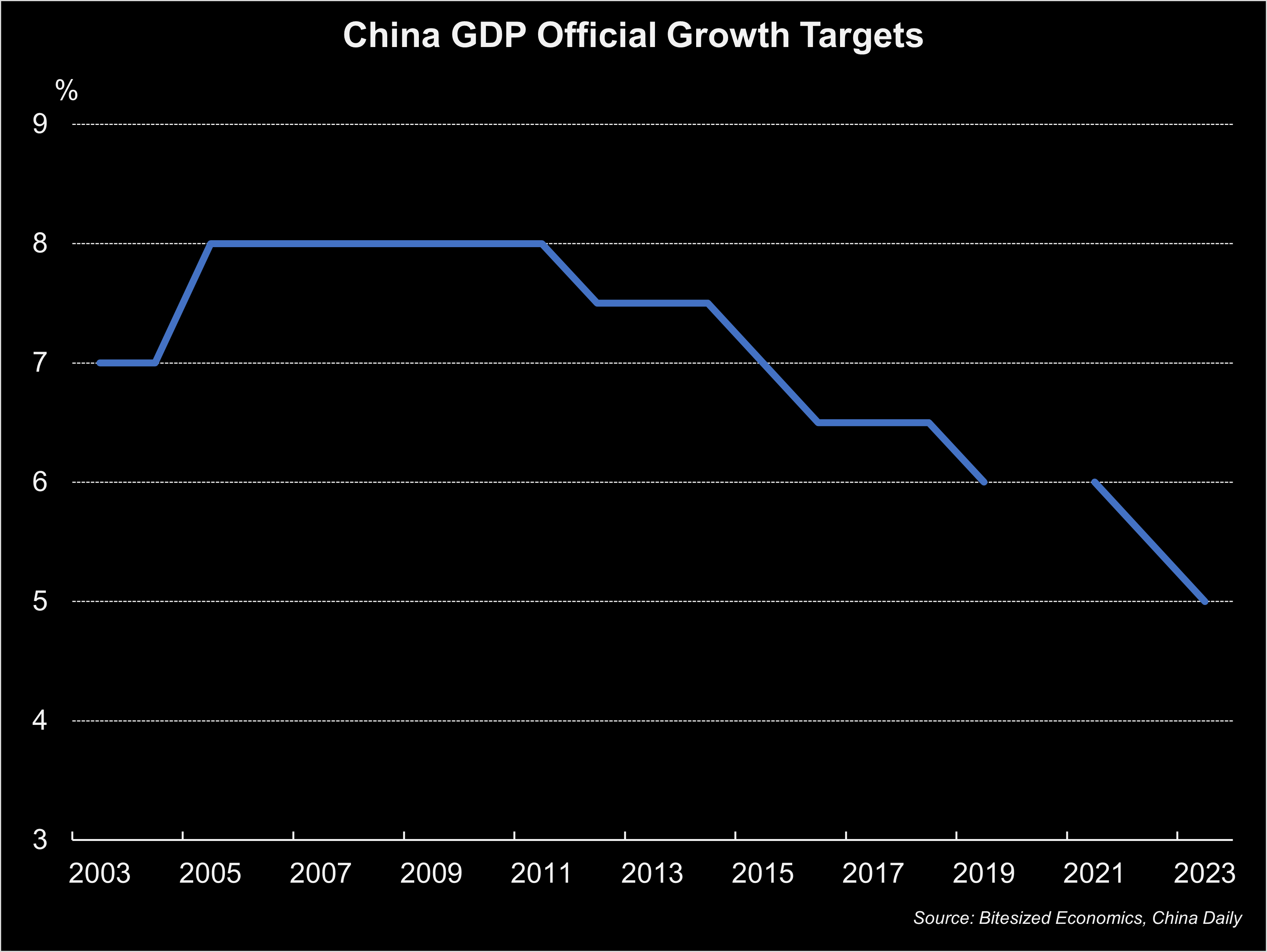Reading between the lines of China’s economic growth target
Around this time last year, China’s government set a growth target of 5.5% for 2022. The target was widely considered to be ambitious, particularly as omicron was still raging around the world and as a zero-COVID policy remained firmly in place.
As it turned out, it was not possible to keep zero-COVID and meet that growth target. As we know, zero covid took priority, and economic growth came in at 3%.
This year, for 2023, China’s growth target of “around 5%” is not seen as particularly ambitious. Indeed, given the rebound in economic activity after abandoning its zero-COVID policy, it could be considered as rather conservative.
A return to a similar trend of growth of economic activity in the private sector prior to the pandemic should easily make the 5% target. Economic growth is expected to come in at around 5.5% this year.
Therefore, a conservative target might imply that the government may not go so hard on stimulus.
That would be the logical conclusion. Except that increased funding to support infrastructure this year would suggest that authorities have not backed down on stimulus either. The pledges for supporting the economy this year and increased quotas for bond issuance by local governments suggests that the CCP is still wanting to maintain a high level of support this year. Of note is the fiscal deficit to be set at 3% of GDP this year, slightly up from the 2.8% for 2022.
It is this predicament that perfectly sums up the long-term growth challenge for China. The government needs to maintain a significant amount of spending, just to prevent investment from being a drag on the economy. To have investment spending contribute to economic growth, year after year, investment will have to keep growing, from already high levels. But part of China’s growth problem is that it needs to move away from an investment-led growth model. That kind of rebalancing would usually require that investment decline. There aren’t many examples in the past, and in other countries, where strong spending in investment hasn’t been followed by a sharp detraction.
It would seem as though the Chinese government doesn’t really want such a large adjustment to occur. However, it doesn’t want to overly exacerbate the problem either.
In a way, the lower growth target is a reflection of the long-term strategic goal of obtaining ‘quality’ growth. In truth, to pursue ‘quality’ growth, the CCP should do away with the growth target altogether. The target has incentivised a ‘growth at all costs’ mentality, and which has led to the spending on unproductive infrastructure.
Perhaps a conservative target is some transition away from that focus of aligning officials’ performance with economic growth. Perhaps it is also an acceptance that persisting with the old growth model of the past is going to create bigger problems in the future. China’s growth target has been gradually ratcheting lower over the past decade.

So, is China’s “around 5%” growth target too conservative? Not really, not when taking into the context of the longer-term challenge for China’s economy even though it should be met easily this year.
4 topics